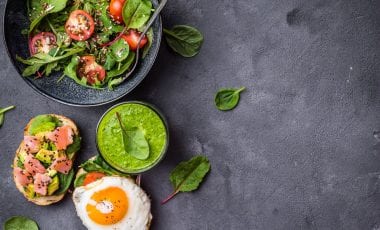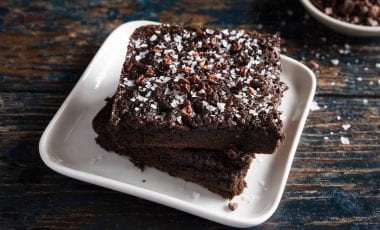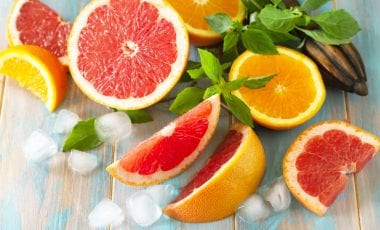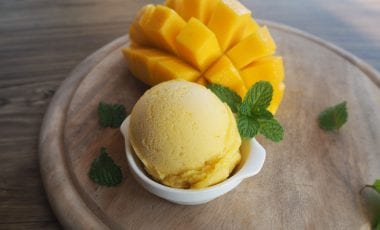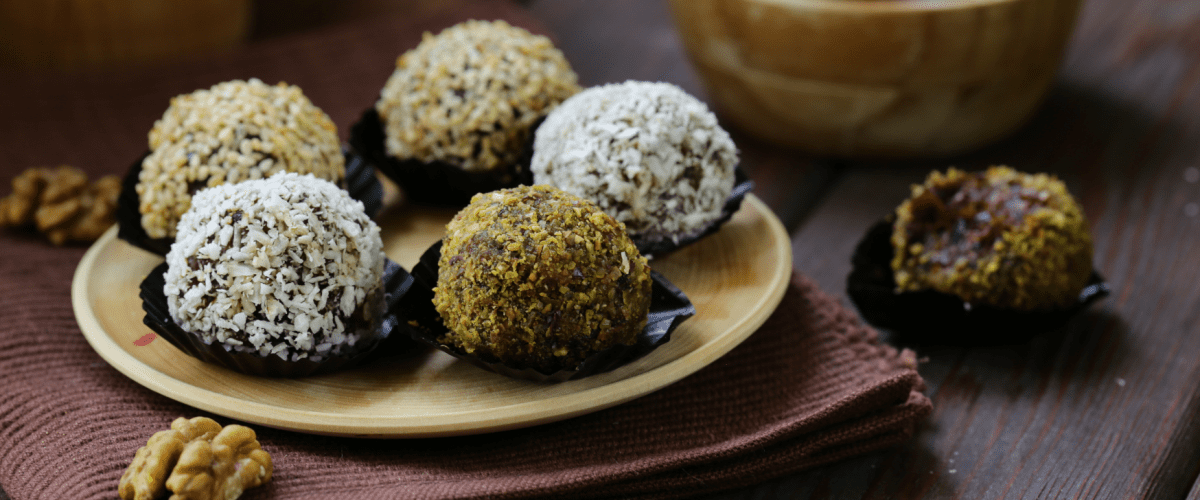
When you get hungry between meals, you need to make a conscious decision about the right snack. Your body and your general well-being will thank you!
Whether your stomach is rumbling or you just fancy a bite to eat, when we get hungry between meals we often reach for sweet foods or salty snacks. However, these only increase our sense of well-being for a short time. Healthy snacks, on the other hand, provide us with valuable nutrients and long-lasting satisfaction. It’s therefore worth making a conscious decision in favour of the right energy boost – and we can help you here!
It’s very true – the call of chocolate and crisps can be very loud. But our snacking behaviour depends to a large extent on our habits. Most of the time, unhealthy snacks are most readily available. However, mass-produced, ready-made pastries and sweets often contain unhealthy fats and too much sugar or salt. They also only increase, instead of satisfy, the desire for food, and they do not provide any valuable nutrients. High and frequent consumption of these treats therefore increases the risk of obesity and other diseases. If we get used to healthy snacks instead, we benefit in many ways. After a while, these virtuous treats usually taste even better than the much-loved potato chips.
The purpose of healthy snacks is to nourish, taste good and satisfy
As well as energy, healthy snacks provide us with things we need: high-quality protein, good-quality fat and important vitamins and minerals. The sugar and salt content should be as low as possible. The less added sugar we consume, the more sensitive we become to sweetness. The same is true of salt. Even though salt is essential for life, we need much smaller quantities of it than the average person consumes. In order to be able to focus on our tasks for longer after our snack and without a rumbling stomach, the snack should fill us up for a long time. A high fibre content is helpful here. Fibre binds water and therefore swells in the stomach, making us feel full for longer. This effect also ensures good digestion.
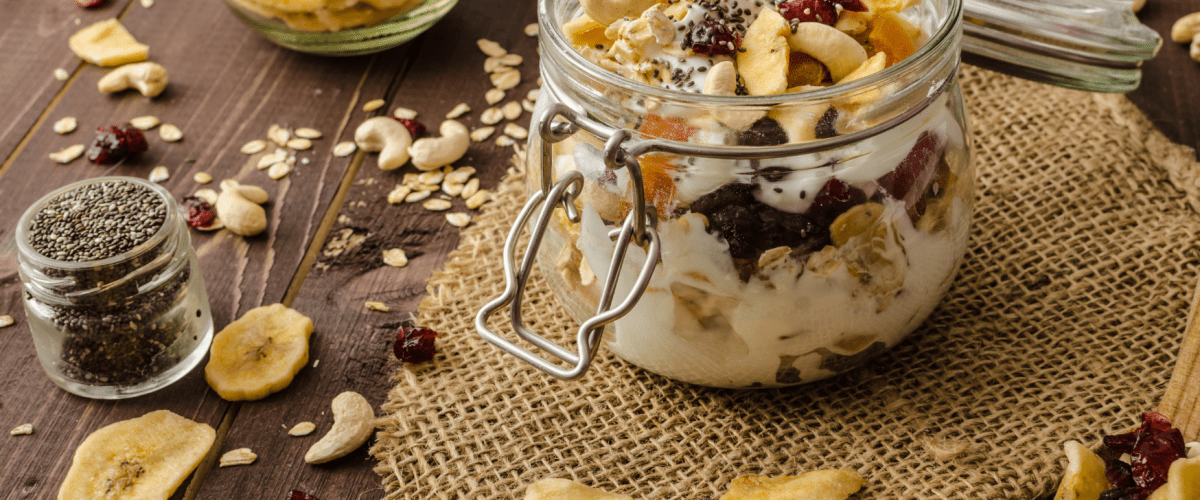
Natural snacks are best at combining these features. Fresh fruit, for example, is a treat which provides us with natural sweetness, energy, valuable vitamins and minerals and also contains satiating fibre. Nuts are also full of healthy fats, high-quality protein and vitamin E. When combined with dried fruit, even those with a sweet tooth will be satisfied. But take care – nuts and dried fruit, in particular, are very high in calories, so the same applies here: be moderate and listen to your own feeling of satiety. Natural ingredients are also great to use for creating a varied bite to eat between meals and for producing your own snacks.
Completely natural: delightful home-made snacks
Do you enjoy yoghurt, quark or other dairy products between meals? This is a good choice, because these too provide you with valuable nutrients. But be careful: ready-made fruit preparations contain a lot of sugar. It is therefore better to buy natural yoghurt, pure buttermilk or natural quark and to enhance the products with fresh fruit and cereal flakes. This guarantees enjoyment and satiation! For an evening’s TV viewing, yoghurt or quark can be prepared with a little salt, pepper and some herbs to make a savoury dip. With a colourful raw vegetable platter, not only do you have enough to nibble on, but you are also doing yourself some good.
Another clever snack idea are so-called “energy balls”. These delicious balls are made of valuable ingredients and can be quickly made at home. These can consist, for example, of dried fruits, oats, linseed, honey, nuts and pistachio kernels. The ingredients are chopped up in a blender and then simply formed into balls. There are many possible variations here, which means that quick and healthy energy boosters can be produced for every taste.
Fully vegan: extra protein for a plant-based diet
Even without the use of animal products, there is a wide range of snacks available for between meals. Fresh fruit, vegetable sticks, nuts and dried fruit are, of course, suitable here too. If you have a vegan diet, protein-rich snacks are ideal and nuts and cereals are therefore highly recommended. Sugar-free versions of vegan milk substitutes can also be chosen and enhanced with fresh fruit and cereals. Pseudo-cereals such as buckwheat, quinoa or amaranth are also particularly high in protein.
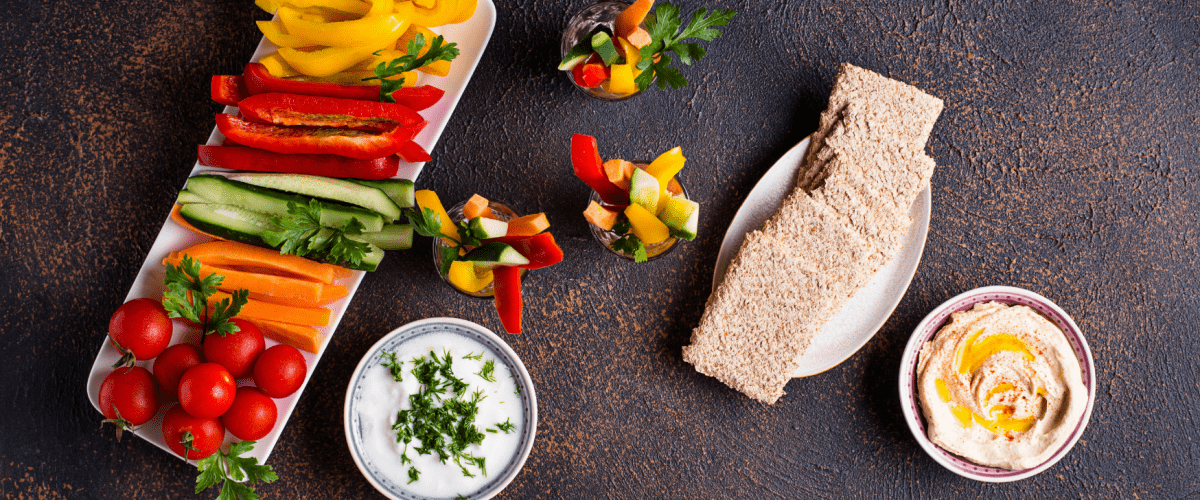
As savoury dips for fresh vegetable sticks, hummus and guacamole are good alternatives to quark. Home-made crisps made from dried kale leaves or courgette slices, home-made popcorn or edamame are great alternatives to potato chips and are perfect for vegan snacking. Vegetable crisps can be made by wetting kale leaves or courgette slices, for example, with a mixture of oil, salt and spices and drying them in the oven for one to two hours at approx. 120°C. It is important to turn the crisps half way through. Try it out!

